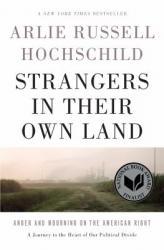
This is a must read for those seeking to understand the current political climate in the United States: particularly how those who support Donald Trump and often vote against their own well-being view the world. Hochschild is a sociologist from UC Berkeley who set out to resarch this very circumstance and connundrum. Hochschild gains access to Tea-Party and Trump Supporters in Lake Charles, Louisiana, establishes relationships with several people far from her West Coast and intellectual liberal leanings, and manages to get deep enough into their lives and personal histories to develop and describe empathic understanding of their political views. Hochschild remains objective as she delves deeply into attitudes and feelings of those with whom she disagrees culturally and politically. Her effort to help the reader understand that the most important wall we face is an Empathy Wall is enlightening and highly interesting reading.
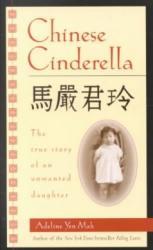
The true story "Chinese Cinderella" is about a young Chinese girl named Adeline who faces the struggles of being unwanted and unloved. Adeline is seen as bad luck because her mother died after she was born. Her stepmother, Niang, hates her and favors all other siblings besides Adeline. Adeline achieves academic awards and good grades in hopes to make her family proud however they still see her as nothing. Throughout the book she faces many different problems all relating to her family mistreating her. Adeline is even sent to an orphanage at one point due to her friends coming to her house to throw a party for her. Not only does she face physical issues, but Adeline faces mental and emotional issues. Despite these issues, Adeline stays strong until the end and continues to try her best.
I read this book for a book report and was not at all disappointed."Chinese Cinderella" was sad but heartwarming. During multiple points in the book I cried. Adeline's feelings are very relatable and real. I thoroughly enjoyed the book."Chinese Cinderella" is in a genre of books I do not generally read however I was surprised and actually liked it. It is one of the best books I have read this year; I would definitely recommend it.
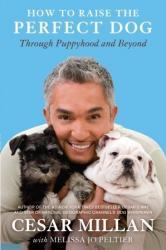
How to Raise the Perfect Dog is a great book for those looking to raise a dog. Whether your skeptical about getting a dog or have problems with your current one, this is the perfect book for you. While it's quite a weird book to review, the book gets across its point. It teaches the fundamentals of raising a dog and even elaborates very well on some aspects of dog raising. Overall, it's a pretty good book, but I would only recommend it to those who have a dog.
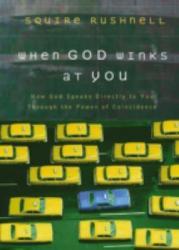
A few months ago, I received an e-mail from my mother that passed along a suggestion from my grandmother that I read this book. While not a long book by any means, my wife and I read a story each night after dinner and finished it in a few months. Basically, this collection of inspiring stories goes so far as to suggest that all the fortuitous coincidences we experience in our lives are evidence of a loving and all-powerful Creator. As a Christian, I did see most of these stories as supernaturally-influenced, even if my scientific mind was skeptical at times.
Separating the coincidental with the God-influenced can be difficult. While some stories seemed like mere coincidence, there were still quite a few contained in this volume that had no other explanation other than God showing off what He can do. Collected into a few different categories, many of these stories had us in tears as they were filled with touching moments that spoke to our ability as individuals to be God’s vessels to impart His timing in the lives of others, either to save their lives or to bring blessing into them.
In the end, the book does highlight how our lives can either be seen as a series of coincidences or as God-inspired plans. If we live our lives with the mindset that any lucky break or prescient reminder is just random chance, then we might miss out on some of the truly spectacular coincidences that have no other explanation than being orchestrated by a higher power. On the other hand, if we recognize even the smallest connections in our lives as God acting through the slightest details, we can be comforted in the fact that He cares about us, even down to the minutia.
A little book filled with inspirational stories, I give When God Winks 4.0 stars out of 5.
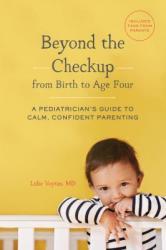
***THIS BOOK WAS RECEIVED FROM A GOODREADS GIVEAWAY***
While I do not have children yet, I am doing my best to prepare my knowledge for when they do become a part of my life. Consequently, books like Beyond the Checkup seem to be a perfect resource for parents, as it is written by a pediatrician. That being said, I think I'm probably a little biased in wanting an older, more grandfatherly pediatrician writing books like this. After all, a lifetime of experience seems to speak more than just 15-years-worth of it.
Regarding the book's content, Luk Voytas does a reasonably good job of presenting the big problems that might come up in a child's first four years. While he does use scientific studies to back up his suggestions, there are some instances where it's unclear whether or not there is any science behind his opinion, or if it's his own personal thoughts. I did appreciate the "case studies" in the back of the book, as I could see each of the ailments contained therein being something I'd want to reference in case it would happen with my child.
My only other qualms with this book have to do with the "asides" and the gender of the baby being referenced. Occasionally, Voytas will have a box with a little bit of extra information about a topic, but these boxes will often break the flow of a paragraph and seem to be more in the way than they should be. I also didn't particularly like how Voytas switched between male and female pronouns to describe the generic "baby" that the reader should have. I'd either say be consistently male or consistently female or at the very least use gender-neutral pronouns to describe the reader's baby.
An OK reference for parents with or expecting babies, I give Beyond the Checkup 3.0 stars out of 5.
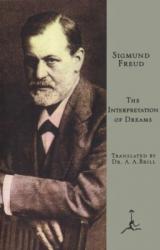
Years ago, I tried picking up this book and reading it so I could become
educated about dreams and their interpretations. Back then, I lost interest
within the first hundred pages. This time, as I prepare to write my own
fictional series of books about dreams and the parallel world they inhabit, I
was much more focused and able to finish this daunting book. While many will
say what they will about Freud and his theories, this book was the definitive
and groundbreaking work that helped us all understand a little more of what
influences our dreams.
Written mostly as an academic examination of the influencing factors of
dreams, Freud includes a plentitude of examples from his patients and his own
life to help prove his point. This can be a little tedious at times, as it
feels like he’s banging the reader over the head with multiple examples
that don’t add much to the explanation. Of course, Freud does go on to
reference these examples in later sections of the book, which is why they are
so heavily weighted toward the front of the text.
While this book isn’t meant to be used as a reference to understand the
direct meanings of specific dream elements, it does provide some thoughtful
reasoning behind some of the most common ones like falling, appearing naked
in public, and the “school dream.” That being said, the more I read, the
more I realized we truly know nothing about dreams. Analysts have to rely on
the fallible memory of the dreamer, and Freud often tries to explain away
inconsistencies by “reversing” the dream’s symbolism. I also found
Freud’s penchant to regularly resort to sexual meanings behind dreams seems
to be a case of “if you have a hammer/phallus, every problem is a
nail/phallus.”
A proper examination of the basics of dream interpretation, I give The
Interpretation of Dreams 3.5 stars out of 5.
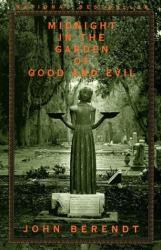
A word of warning: This book contains discriminatory and vulgar language, including the N-word and other severe cusses. Midnight in the Garden of Good and Evil follows a quirky, discombobulated town. The residents are an amalgam of a depressed inventor who's secret poison could kill the entire city, a drag queen who dances exotically and drops bombs of dirtiness, a wealthy and closeted gay antiques dealer who loves to corrupt social norms, and a voodoo priestess who sneaks into graveyards at midnight, among other deranged, hilarious, and nonconforming people. This town is so dysfunctional and dark that it functions. The first half of the book was devoted to charting and describing the mysterious lives of the residents of Savannah, Georgia. The second half followed the conviction and multiple trials of one particular resident after he 'murdered' someone else. However, I would encourage you to read the Author's Note at the end, but only after you finish the book. It left me dazed for days at the major plot twist snuck at the very end.
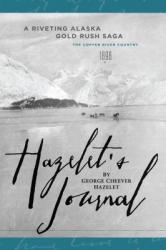
This review is really about a spread of books I found or was able to access through PPLD. After an enjoyable visit to Skagway, AK, I became interested in Klondike Gold Rush history. Through the PPLD catalog and an interlibrary loan I accessed: Hazelet's Journal by George Cheever Hazelet: If you enjoy history from original sources, this book will draw you in as the author writes honestly about a business failure that led him to seek gold in Alaska. The arduous travels searching for gold are documented both by journal and amazing photographs. It is a slow read for someone who enjoys more of a "story." Although Cheever fails in the gold rush, as well, the stage was set for eventual successes that were instrumental in Alaska frontier development. Journey (fiction) by James Michener: A quick read that will be more enjoyable to the reader looking for a story within the historical background of the gold rush. Four Englishmen and an Irishman push their way across Canada to Dawson City, fulfilling the image of the phrase "Mad dogs and Englishmen." Gold! The Klondike Adventure by Delia Ray: Young Adult book that provides an easy-to-read purview with photographs of the rush, perils, commercialism, and subculture that arose between Skagway and Dawson City. Prospectors and merchants alike sought riches on the Alaskan frontier within a very short timeframe: 1897-1900. Klondike Fever by Pierre Berton: Subtitled The Life and Death of the Last Great Gold Rush, this book provides an exhaustive and interesting read about the gold rush from many different angles. This book was accessed through an interlibrary loan. However, the book was so old it was not pleasant to read so I am hoping PPLD will purchase a new edition. It is a very good book!
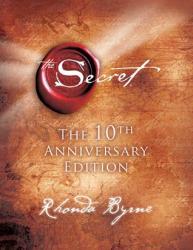
"The Secret" by Rhonda Byrne reveals the science behind the Law of Attraction and how to apply it to every day life. I'm not kidding when I say this book changed my life. After discovering how I have personal power to positively change my life using the Law of Attraction just by thinking positively, everything opened up. I learned that life doesn't simply happen to us; we can make our lives extraordinary. Incredibly well written and very powerful, this book is full of inspirational quotes and success stories used to motivate you towards achieving your goals. I highly recommend this book if you want to affect positive change in your life.
Grade: 12
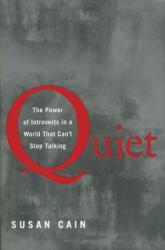
This book has me questioning whether or not I'm actually the straight-up extrovert I believed myself to be. Maybe it's a product of aging or of circumstances, but I find myself identifying with the introverts in some aspects of my life. My husband is a hard-core introvert, so this book reinforced what I already know about him. The anecdotes were very interesting and the presentation was more readable than your average nonfiction book. Good book!
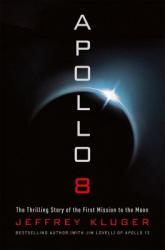
In August 1968, NASA made the bold decision to win a major battle in the Cold War by launching the first manned flight to the moon. President Kennedy's deadline of putting a man on the moon by 1970 was fast approaching, but Frank Borman, Jim Lovell, and Bill Anders were up to the challenge to make a huge advancement in order to meat the deadline. Apollo 8 tells the full story of the mission from Mission Control to the astronauts' homes, from the test labs to the launch pad. Apollo 8 also gives a summary of the Mercury, Gemini, and the other Apollo missions and talks about the science behind the mission in an easy to understand manner. From the coauthor of the bestselling book about Apollo 13, Apollo 8 is a thrilling yer informative tale and a great resource to have. I highly recommend this book for anyone in high school or older who is fascinated by the space program or is doing a project on anything related to NASA.
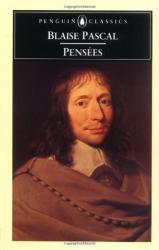
While I do enjoy and appreciate the ease of which I can listen to an audiobook and absorb the content of a variety of books, there are always a few books that don’t translate well into the format. Sure, I might have my qualms about the narrator’s pronunciation, volume control, or other technical issues. However, this is the first book where the rating I’m giving applies explicitly to the audiobook version, and not necessarily to the book’s contents. The difference here is that the audiobook version of Pascal’s Pensées doesn’t allow the reader enough time to adequately absorb the content.
If I were to classify this book, I’d probably say it’s closer to a listing of complaints/observations that would work better on a multi-year “item-a-day” calendar than in an audiobook format. The majority of Pensées is a series of proverbs by Blaise Pascal, a name that most scientists will recognize. The fact that he so thoroughly analyzed the theology of the Bible and came to the conclusions that he did perhaps speaks volumes about scientific atheists today who have not done nearly as much research on their spiritual beliefs. There are plenty of gems of wisdom in this book; it’s just that the audiobook format doesn’t easily allow the reader to dwell on them for more than a moment.
Perhaps when I have a little more time to fully appreciate Pascal’s Pensées, I’ll sit down and read it. Fortunately, since it’s in the public domain, this book is free to read on Project Gutenberg. Until then, though, I can’t recommend people read the audiobook version of this text.
If I manage to physically read this book in the future, I’ll likely give it an adequate rating, but as it is right now, I only have the audiobook version to go off of.
A book of proverbs you should read instead of listen to, I give Pensées 2.5 stars out of 5.
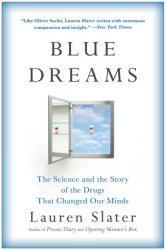
This book was okay. It takes the reader through the history of psychotrophic drugs. It's overall pretty dry. There are some parts that are very interesting, such as the author's struggles with psychotrophic drugs and the use of psychedelics in psychiatry, but overall I was pretty bored reading it. Maybe I'm not the target audience. Maybe it's geared more toward the academic set. But I did learn some, so I give it 3 stars.
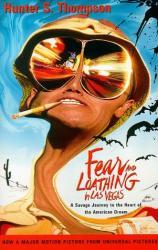
This book was fantastic! It takes you on a drug-fueled, depraved, whirlwind tour of Las Vegas with Raoul Duke (Thompson) and his attorney. The sheer amount and variety of drugs ingested was enough to blow my mind, not to mention the shenanigans that occur as a result. There were some instances of depravity that curled my toes, but the ride was well worth it. Gonzo journalism rocks!
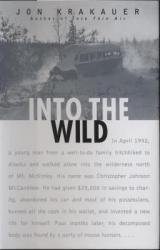
Into the Wild is a nonfiction narrative of the life of Christopher McCandless, a man who ventured into the wilderness of Alaska to live a self-sustained life. At first, I thought this book was awfully dry, but I soon warmed up to Krakauer's writing style. In fact, Into the Wild ended up being so thrilling and intriguing that I couldn't put it down. The best part of this book is the inspiration it provides. It talks about McCandless's reasons for leaving civilization behind, and it also mentions many transcendentalist authors. I now love nonfiction adventure. Everyone should read this book.
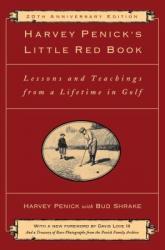
Harvey Penick was a renowned golf pro at the Austin Country Club who began his as a caddie. He also coached golf at the University of Texas of thirty years and worked with the likes of Tom Kite, Ben Crenshaw, and Betsy Rawls. Harvey Pencil's Little Red Book started as notes and observations from Harvey's lifetime in golf that only his family was allowed to read. However, Harvey decided to share his wealth of golf knowledge with the world and had this book published. This book is full of amazing tips and tricks that all players can adapt to their game. It also gives many exercises that can improve your game. Finally, Harvey gives many phrases and sayings that are easy to understand and help you to have the right mentality for playing golf and for life. Even though Harvey passed away in 1995, his teachings are still very useful today. I highly recommend this book for all players, caddies, coaches and golf pros.
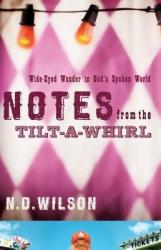
This book is an Ecclesiastes-type project. In some ways, you could say it comes to the same conclusions as Ecclesiastes. There is nothing better than to simply enjoy life, says the sage. Woven throughout this delightful commentary on the world in which we find ourselves living, runs the same thread of truth. This world is full of enough mystery and wonder to fill infinite life times; so wake up and discover it. Don't become numb to the inescapable miracles everywhere you look.
With wit and humor, you will find yourself agreeing that humanism and materialism are the most bazaar and ridiculous of all philosophies. They are too inane to even warrant serious discussion. How does Wilson deals with someone like Nietzche? "I want to ruffle his hair. I want to take the poor Lutheran boy's head in my hands and kiss his creased forehead." This is perhaps a good illustration of this book's intentions. Wilson ruffles the hair of all philosophies which turn deaf ears to the noise that all creation is loudly proclaiming: there is a creator.
One can almost imagine a serious-minded humanist bursting into laughter while reading this and realizing how deliberately closed-minded he has been all his life.
But Wilson not only opens our eyes to the wonders of God's design in creation, but tackles the mysteries of suffering, pain, and hell head on. He does not try to neatly sum it all up for us in trite sayings, but instead simply stares reality in the face. You will not find any sugar-coating in this book. An atheist once asked Wilson, "So do you really think I'm going to hell?" Wilson promptly answered, "Don't you want to? You won't have to be with God there. Whereas you would have to be with God all the time in heaven." In the end, Wilson concludes, everyone will get what he truly desires.
This is enjoyable reading, much like the book of Ecclesiastes, and at times, could be categorized with the stream-of-consciousness genre. But it was refreshing, humorous, and most of all starkly truthful. You will be enlightened and refreshed!
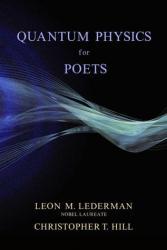
Quantum Physics for Poets explains some of the most arcane quantum physics topics to readers in a form which captures imaginations and aids understanding. Mr. Lederman and Mr. Hill have managed to write a book that spans simpler topics to far more complicated topics that most will never encounter, with a poetic theme to it that speaks to readers’ artistic souls. The blending of right brain and left is exceptionally done, managing to combine a love of understanding the world around us and a love of the singularly beatific rhythm that poetry provides in one’s life. An excellent book and an enthralling albeit challenging read, I would recommend this book to anyone with a high level of interest in the sciences, particularly physics, and a large interest in exploring its greater depths.
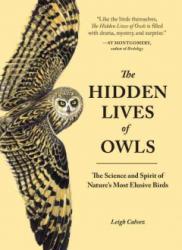
The Hidden Lives of Owls is a gripping nonfiction book that not only builds one’s knowledge of the species, but actively forges a bond between readers and the unique creatures. The book chronicles Mr. Calvez’s journeys through nature’s forests as he observes the innermost habits of owls. Mainly, Mr.
Calvez observes the owls at night, giving way to the book’s title of “Hidden Lives”, as he observes things one would not usually see in the daytime. Through its first-person narration by Mr. Calvez, a naturalist, the Hidden Lives of Owls reveals many aspects of the life of the owl about which one would never before be aware. I would recommend this book to anyone interested in the mysterious creatures that are owls, and interested in searching out further facts about these beautiful, wonderful, animals than is seen on the surface.
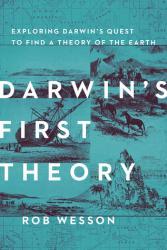
Everyone knows the name Darwin. The name is synonymous with one of the most important theories ever generated by mankind. At this point in the world, the name is less a name and more a representation of something much greater. Yet, as Mr. Welson leads us to question in his book Darwin’s First Theory, how deeply do we truly know the man who changed the face of our understanding of earth forever?
Written by leading geologist Rob Welson, Darwin's first theory explores the beginning of Charles Darwin’s quest to find a theory of the earth, and explores how his early theories helped shape his future and most famous theory of evolution. By bringing us along through well-researched narration of Mr. Darwin’s first journey on the HMS Beagle, Mr. Welson brings us to a greater understanding of the man whose theory shaped modern biology around the world. Darwin’s First Theory is an informative read. To anyone interested in Darwin, and interested in a greater understanding of biology's most influential theory, I would recommend this book.



 Ruth Holley Library will be temporarily closed for approximately one week starting Mon., Dec. 2 to complete roof repairs.
Ruth Holley Library will be temporarily closed for approximately one week starting Mon., Dec. 2 to complete roof repairs.